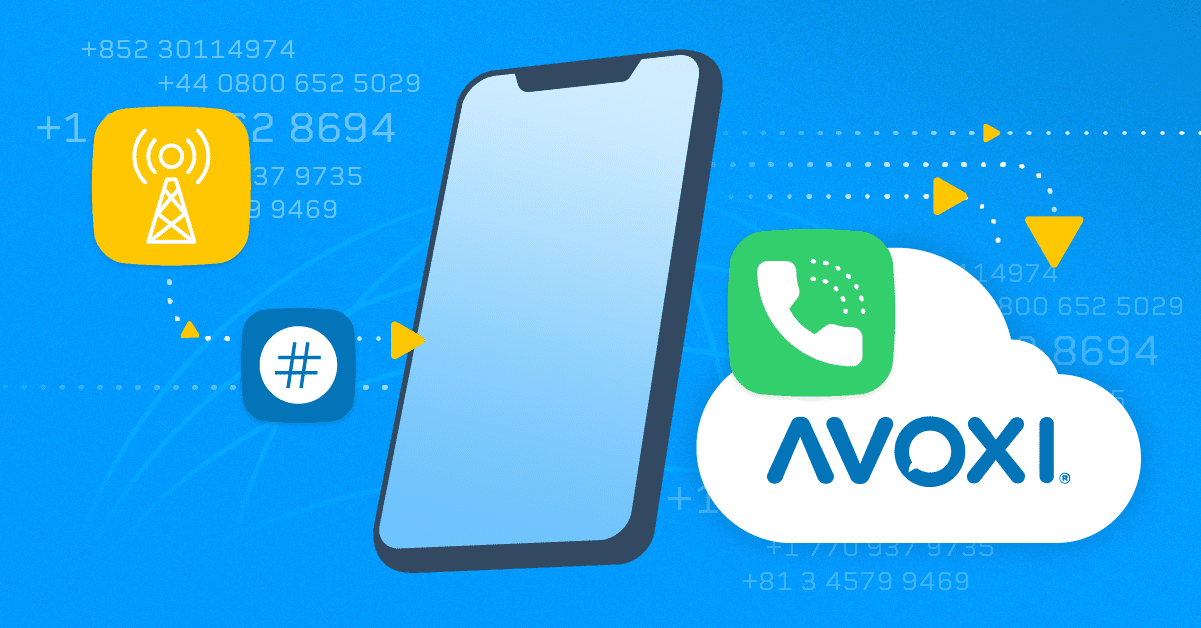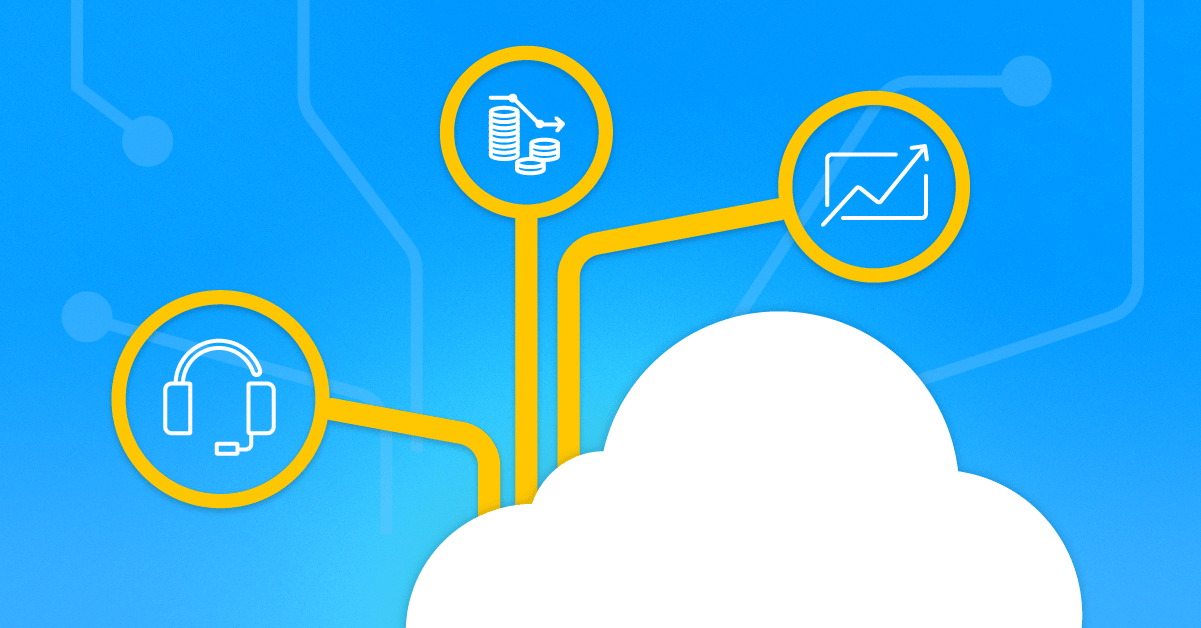Cloud Voice
Cloud Voice
Cloud voice technology is a revolutionary leap forward in the rapidly evolving telecommunications landscape.
What is Cloud Voice?
What exactly is cloud voice, and why has it become such an integral part of our modern communication toolkit?
At its essence, cloud voice, or cloud telephony, is a technology that shifts business phone systems from traditional hardware-based solutions to the cloud. This means that all communications — whether voice, video, or data — are managed via the Internet, enhancing accessibility, scalability, and cost-efficiency.
The Significance of Cloud Voice in Today's World
Cloud voice technology significantly departs from conventional telecommunication methods by offering businesses and individuals a more flexible, reliable, and scalable solution.
Its importance cannot be overstated, especially in an era where remote work and digital operations have become the norm rather than the exception. By leveraging the power of cloud computing, cloud voice enables users to access their phone systems from anywhere in the world, provided they have an internet connection.
This level of accessibility ensures that businesses can maintain seamless communication channels with their teams and customers, regardless of geographical boundaries.
Advantages of Adopting Cloud Voice
- Cost Savings: By moving to a cloud-based system, businesses can significantly reduce the costs of managing and maintaining traditional phone lines.
- Enhanced Flexibility and Scalability: Cloud Voice systems can be easily adjusted to accommodate the changing needs of a business, allowing for effortless scaling up or down as required.
- Improved Accessibility: With Cloud Telephony, employees can stay connected and productive no matter where they are, using various devices, including smartphones, laptops, and tablets.
Cloud voice technology simplifies the complexity of managing communication systems and provides businesses with a robust, efficient, and cost-effective solution. As companies continue to navigate the challenges of the digital age, the adoption of cloud voice and cloud telephony stands as a testament to the power of innovation in driving connectivity and collaboration.
How Does Cloud Voice Work? Unveiling the Mechanics Behind the Technology
Understanding what is cloud voice and how it works requires diving into the technical and practical aspects of this advanced communication technology.
Cloud voice functions by leveraging the internet to facilitate voice communications, a significant leap from traditional telephony systems that relied on physical hardware and landlines.
The Technical Foundation of Cloud Voice
Cloud voice evolves around Voice over Internet Protocol (VoIP). Unlike conventional phone systems, Cloud Voice uses the internet to transmit voice data, enabling calls to be made and received over a broadband connection.
This process begins when voice data is converted into digital packets, transmitted over the internet to the recipient, and then converted back into audio.
How Does Cloud Voice Work?
Cloud voice systems are hosted on secure servers maintained by the service provider, eliminating businesses needing to manage or sustain physical PBX systems.
Users can access their phone system via a web interface or app, making and receiving calls using desktop computers, laptops, or smartphones.
Cloud Telephony vs VoIP: Understanding the Differences
While cloud voice and VoIP are often used interchangeably, there are subtle differences between the two.
VoIP refers to the technology used for making voice calls over the internet, whereas cloud telephony encompasses a broader range of services, including VoIP, provided via the cloud. This means cloud telephony supports voice calls and integrates with other communication forms like messaging, video conferencing, and fax, offering a more comprehensive communication solution.
Cloud voice simplifies the complexity associated with traditional phone systems, providing a flexible, scalable, and cost-effective communication solution.
By understanding how cloud voice and cloud telephony operate, businesses can better leverage these technologies to enhance their communication strategies and overall operational efficiency.
Exploring Examples of Cloud Voice: Real-World Applications
Cloud voice technology has found its place across various sectors, demonstrating its versatility and its broad spectrum of benefits. By exploring examples of cloud voice, we can see how this technology is a practical solution that addresses real-world communication challenges.
Cloud Voice in Business Operations
An example of cloud voice can be seen in the operation of modern call centers. Traditionally bound by physical location and hardware limitations, call centers can now utilize cloud voice to operate virtually.
Agents can work from anywhere, ensuring business continuity even in disruptions like natural disasters or pandemics. This flexibility significantly enhances customer service by providing uninterrupted support.
The Benefits of Cloud Telephony in IT
In the IT sector, "what is cloud calling" becomes a question of how cloud-based communication can support the dynamic needs of technology-driven businesses.
IT companies leverage cloud voice for seamless collaboration among global teams, integrating voice communications with project management tools and CRMs. This integration enhances operational efficiency and fosters a more collaborative work environment.
Cloud Telephony's Impact on Healthcare
Healthcare providers have turned to cloud voice to improve patient communication. Features like automated appointment reminders, virtual consultations, and secure message exchanges between patients and healthcare providers illustrate the cloud telephony benefits within this critical sector.
This technology has made healthcare more accessible and efficient, significantly improving patient care and satisfaction.
Cloud Voice Implementation and Features: Elevating Communications with AVOXI
Implementing cloud voice into an organization's tech stack streamlines communication and opens doors to myriad integrations and features, particularly when paired with a provider like AVOXI.
This synergy between cloud voice and cloud services, such as data storage and cloud calling, showcases the transformative potential of integrating advanced communication solutions with cloud technology.
Integrating Cloud Voice with Cloud Services
The integrations of cloud voice with cloud services revolutionize business operations.
Cloud services are services provided over the internet, allowing on-demand access to computing resources and applications. AVOXI's cloud voice solutions seamlessly mesh with these services, enhancing data accessibility and operational efficiency.
For instance, integrating cloud voice with cloud-based data storage facilitates effortless archiving and retrieval of call records, which is essential for compliance and quality management.
AVOXI: A Premier Choice for Cloud Voice Features
AVOXI stands out in VoIP telephony and cloud voice for its robust, feature-rich offerings that cater to diverse business communication needs. With AVOXI, companies gain access to:
- Intelligent Call Routing: Directing calls efficiently to ensure quick response times.
- Automated Interactive Voice Response (IVR): Guiding customers through self-service options or to the appropriate personnel.
- Comprehensive Call Analytics: Delivering insights into call metrics to optimize communication strategies.
- CRM Integration: Enhancing customer interactions with real-time data access and updates during calls.
These features underscore AVOXI's commitment to providing a scalable, integrated communication solution that supports businesses in achieving their operational goals.
Additional Resources

PSTN Replacement
Guide to Voice Termination Services

Retain Phone Number
International
Number Porting

Virtual Phone Line
Benefits of
SIP Trunking
Interested in Learning More?
AVOXI is the cloud communication platform of choice for enterprises and companies with international markets. The road to modernized communications has never been easier, learn what AVOXI can do for you today.